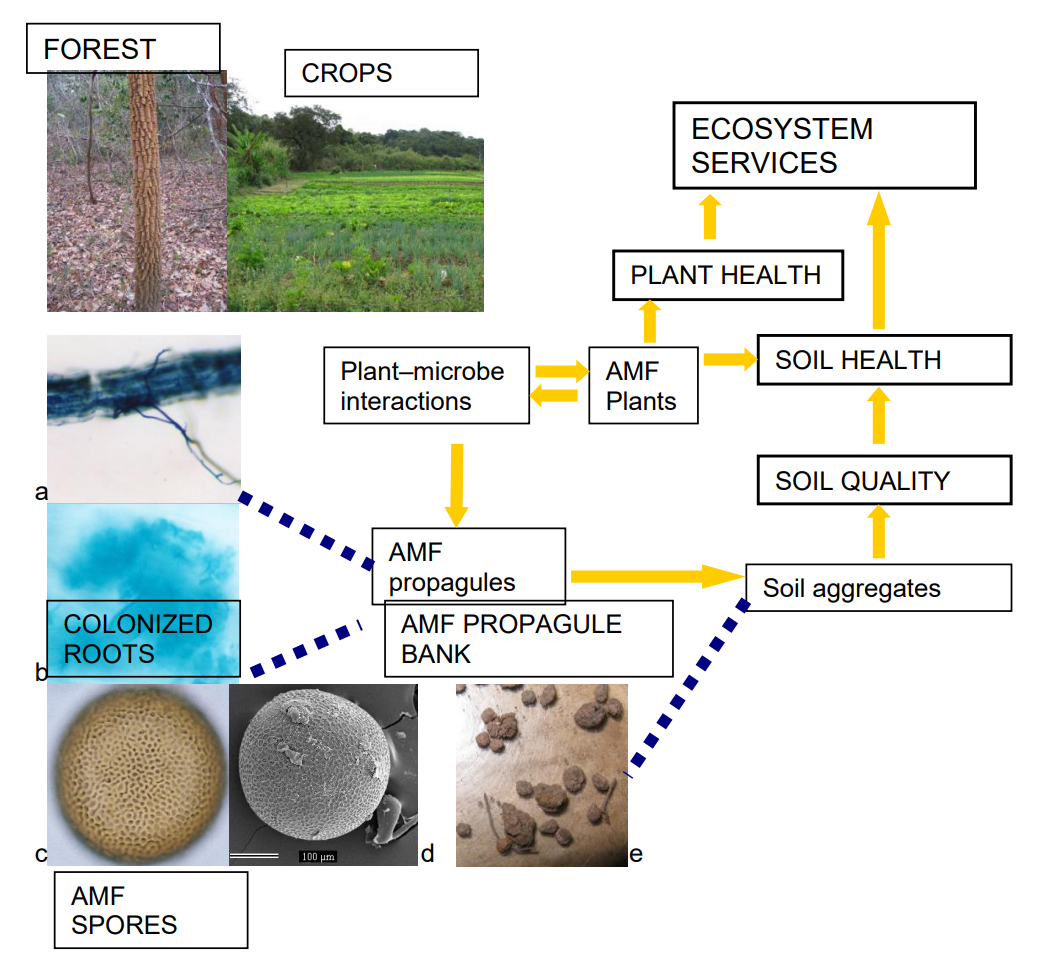Arbuscular Mycorrhizas and Wastes for Healthy Soils
DOI:
https://doi.org/10.70737/4ny48c09Keywords:
soil mycobiota; mycorrhizal symbioses; soil quality; soil amendments; soil healthAbstract
Composting of wastes, biochar and vermicompost, shows different morphological aspects and functionalities, being used to mitigate the increasing CO2 levels related to climatic change and soil carbon stability, biochar presents long chemical permanency due to incomplete combustion of biomass, is increasingly utilized worldwide for soil amelioration, heating and cooking. The agricultural expansion and increasing soil contamination adversely affect soil quality, modifying the number, diversity and activity of the soil microbiota, including symbiotic fungal populations. Soil is a living system presenting its soil microbiota, besides plant symbiotic arbuscular mycorrhizal fungi (AMF) associated with terrestrial and some aquatic plants which are the target of studies in agriculture, agroforestry, restoration of degraded lands and endangered vegetation types; however, AMF is affected by disturbances in the ecosystems, like global change, pollution, or excessive fertilization. AMF belongs to the phylum Glomeromycota, forming symbiotic associations with 70% plant species. The presence and activity of AMF can be measured through different methodologies, both in the soil and in plants, which inform us about their biomass, activity, diversity and their interaction with plants. The need for an increased use of the AMF to counter the challenges of ecosystem restoration and food production is nowadays admitted. We intend to provide evidence for researchers, farmers and decision-makers of the significant links between healthy ecosystems and human well-being, based on current studies on soil health. In the present work, relevant AMF diversity and microbial associations for the wise management of ecosystems are studied.

